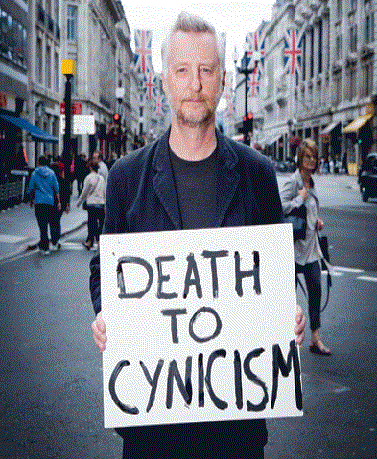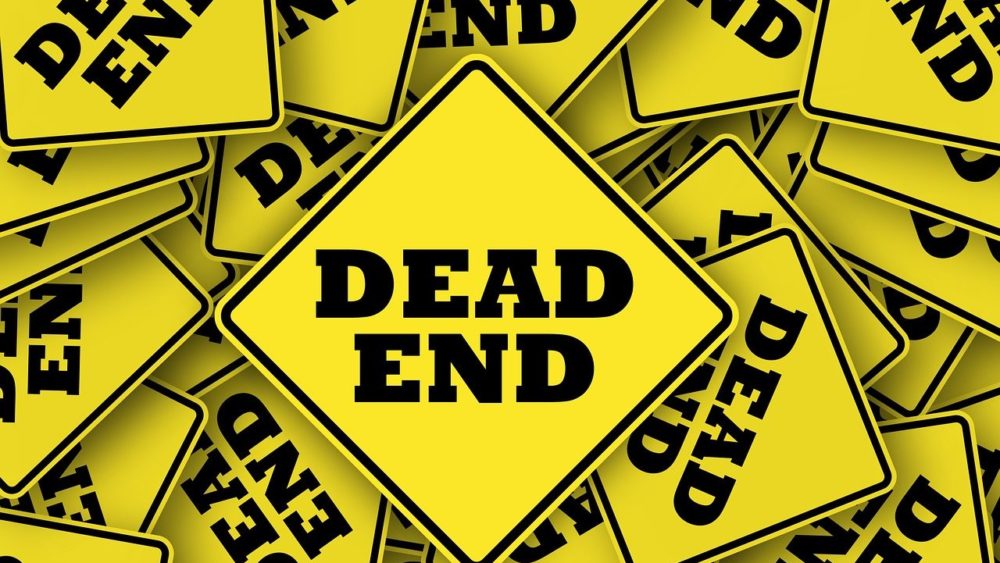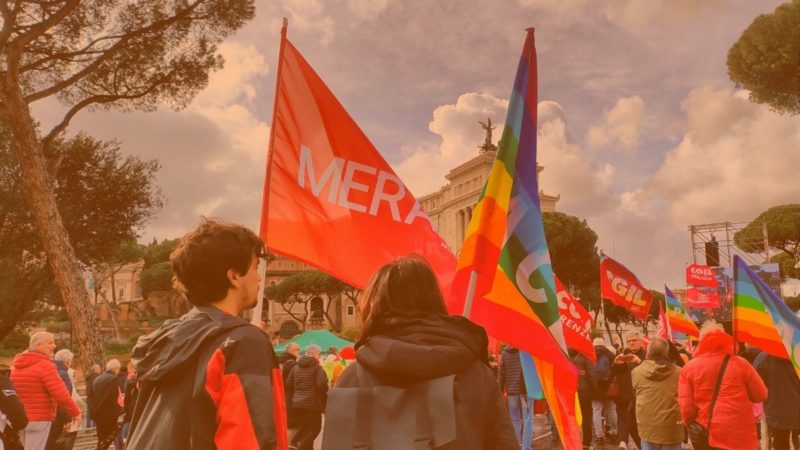By Kate Fistric
Kate is a member of DSC Frankfurt and part of the German PNC. She contributed this article in her personal capacity. The views expressed are her own and do not necessarily represent the views of DiEM25.
If, at the end of 2017, we sum up the year with ironic congratulations because we have somehow avoided nuclear war (fingers crossed), then that says as much about our attitude towards the world in 2017 as it does about the state of the world itself.
Political isolationism, legitimised nationalism, impending climate change, a constant flow of desperate refugees, the gig economy, unceasing debt and hardship in the periphery, housing crises: you name it, we’re facing it. The current global context hardly lends itself to optimism.
And perhaps unsurprisingly, in the face of these seemingly overwhelming challenges, we have become morose and pessimistic. As the world has darkened, so has our mood. Snarkiness, cynicism and divisiveness have become the order of the day.
This renders us immobile and incapable of addressing the multiple threats confronting us, at a time when we need to be as strong, cooperative and positive as possible.
Antipathy on autopilot
When we look at the modern activist movement, it is characterised by a single prefix: anti. Anti-capitalism, anti-globalisation, anti-fascism. This may sound like a truism – a protester is obviously protesting against something. But viewing problems only from the perspective of the oppressed or ‘put-upon’ can be very limiting. Put simply, anti-ism has made us very good at wanting to ‘break things’ but left us poorly equipped to propose positive, constructive alternatives.
When we start to consider a pithy Facebook takedown or a dismissive all-caps tweet to be a good day’s activism, it’s clear that both our approaches and our attitudes leave much to be desired. Social media, in particular, has made dialogue cheap and superficial, turned ‘activism’ into ‘re-activism’ and elevated the bully to the status of hero.
As the futurist Alex Steffen notes, “cynicism is often seen as a rebellious attitude in Western popular culture, but in reality, our cynicism advances the desires of the powerful – cynicism is obedience.”
The power of positive thinking?
So, is our subscription to cynicism, both conditioned and deliberate, actually doing us more harm than good?
No-one has been more burned by this routine misanthropy than the British, who last year voted to leave the European Union. The reasons for Brexit are clearly myriad and complex, but one important factor was the Leave side’s ability to employ the art of cynicism to great effect. Theirs was a negative campaign, full of straw men, empty promises and jingoism. Foreigners were taking jobs from British workers, Brussels had usurped the role of Westminster, and tax payers were paying too much to shore up floundering nations. Everything was about loss, or about the fear of loss.
For the Remain side, a useful counterstrategy might have been one of positivity or constructive criticism, by proposing practical, desirable changes to the EU and casting Britain as a leading progressive power.
Instead, Remainers managed to tie themselves in knots within a paradox of their own making: that they needed to convince a sceptical public to put their faith in a deeply imperfect institution (often one that they, themselves, didn’t believe in). So, rather than spearheading progress, they ended up doing one of two mutually unhelpful things: either denying the inadequacies of the union completely, or weighing them too heavily. The first approach resulted in a disingenuous rictus grin that was fooling nobody, and the second merely added grist to the Brexiteer mill.
It would be facile to say that the Remain side would have been victorious if only it had been a bit more cheerful about the whole thing. Nevertheless, there is much to be said for having the confidence to say something positive when all around are doom-mongering.
Why so blue?

Billy Bragg
So how did we become so bitter? How did melancholia become our default emotional setting; jaded, our prevailing worldview? Pessimism and cynicism aren’t innate – babies aren’t born ready to add a sarcastic comment below the line. It is learnt behaviour.
Our propensity for ‘anti-ism’ (regardless of whether it’s used for positive aims) comes from our lack of democratic robustness. It is a result of a widespread feeling of disenfranchisement. Today, with untouchable, tax-dodging, multinational corporations and a recently rediscovered nostalgia for autocracy, citizens feel increasingly powerless. Things seem to be done ‘to us’, not ‘by us’ and consequently our only recourse is re-action.
In a functioning democracy, where citizens believe that they are in control of their own destiny, there would be little need for this passive, re-action approach. Instead, citizens would shape policies and systems through an effective democratic process, in ways that serve them and those around them. Systems that that encourage prosperity, while providing security and prospects for those who are struggling. Having this freedom, opportunity and confidence in the power of the demos engenders creativity and imagination. Lacking it leads to cynicism and myopia. As Billy Bragg has observed, “cynicism is the greatest enemy” to those trying to improve the world.
Optimism ≠ delusion
Optimism doesn’t mean running around pretending the world is perfect. It’s not about denying reality or tolerating injustice. It’s about imagining better.
We won’t wake up tomorrow in a utopia. Our governments won’t automatically uphold democratic principles, and we will continue to feel put-upon, rather than empowered. So isn’t it inevitable that cynicism will prevail?
Not at all. But, in a sense, the cart may need to go before the horse. Democracy won’t come overnight, so we will need to somehow bend our thinking around this obstacle, and resist our own tendency towards hot-headed blanket condemnation and kneejerk reaction, in order to propose constructive measures to effect our utopia. In short, we need to pause, imagine and pursue the world we want, instead of expending our energy wrangling over what has already been dictated to us. Resistance is key, but it should be a means to an end, and that end should first be defined.
Simply by not rejecting outright the systems that are in place out of hand, we are not condoning them. But we need to view them, not from the one-dimensional and passive perspective that we’ve been trained to, but from a positive, compassionate and intelligent one that allows us to imagine better. DiEM25’s European New Deal is an example of this approach. It recognises the bleakness and the despair, and uses this as a springboard to develop pragmatic, plausible policies to counter our problems. Rather than wallowing in the mire, we can, and must, envision a fairer, safer world, and use this vision to offer citizens genuine alternatives. Cynicism shouldn’t fashionable, and optimism shouldn’t be shameful.
So, don’t grumble; give a whistle. I mean, what have you got to lose?
References for links (as marked with underlining in the text):
Steffen, Alex (2008) Worldchanging: A User’s Guide for the 21st Century, Abrams (referenced in https://www.theguardian.com/books/2007/mar/17/society)
Bragg, B, quoted in The Guardian, 1 January 2011, https://www.theguardian.com/theguardian/2011/jan/01/billy-bragg-saturday-interview
Monty Python (1979), Life of Brian, https://www.youtube.com/watch?v=SJUhlRoBL8M
Bragg, B, quoted in The Guardian, 1 January 2011, https://www.theguardian.com/theguardian/2011/jan/01/billy-bragg-saturday-interview
Monty Python (1979), Life of Brian, https://www.youtube.com/watch?v=SJUhlRoBL8M
Monty Python (1979), Life of Brian, https://www.youtube.com/watch?v=SJUhlRoBL8M
Do you want to be informed of DiEM25's actions? Sign up here




